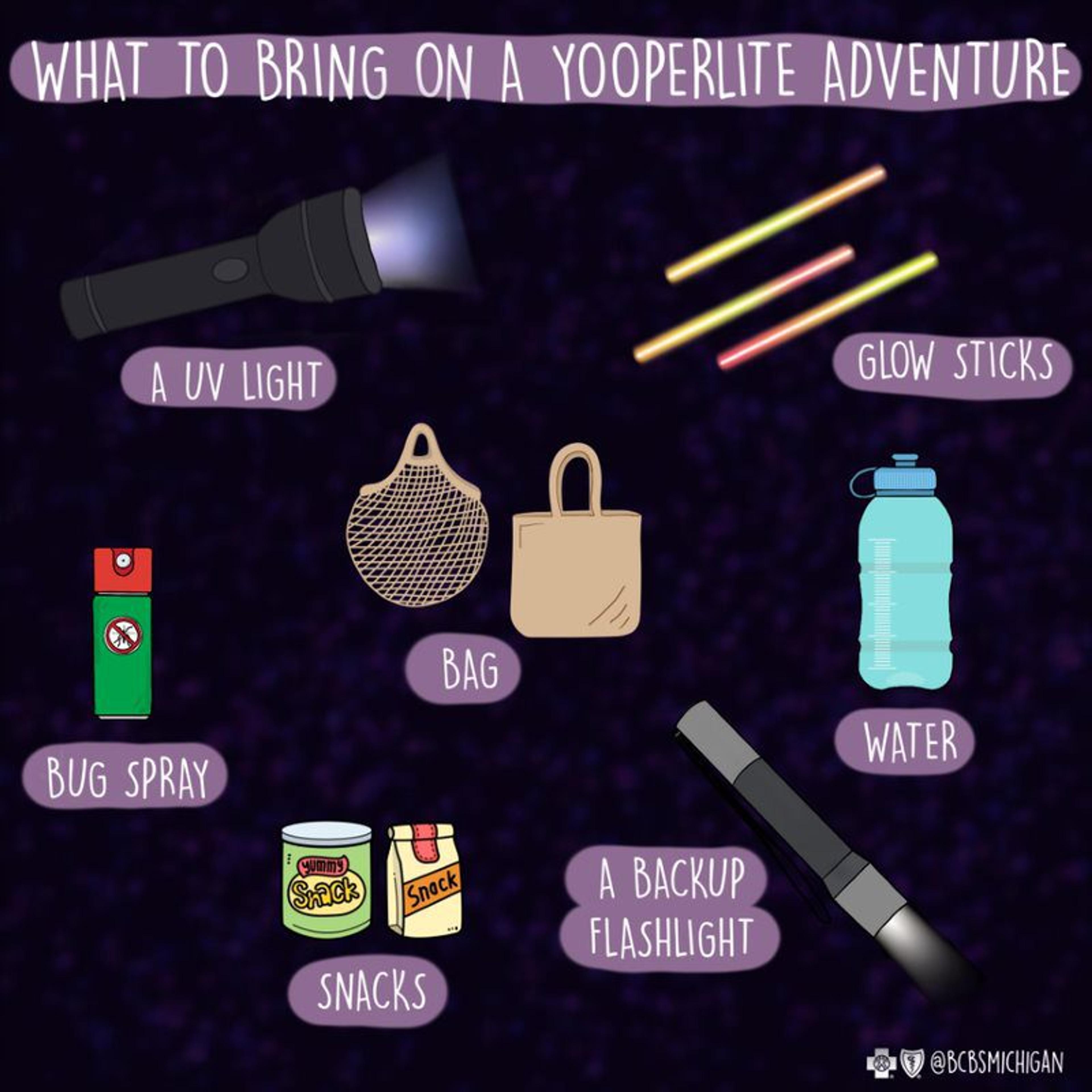Why Yooperlites Are a Pure Michigan Rock-Hunting Quest
Shandra Martinez
| 4 min read

Rock-hunting along the water’s edge of a Great Lakes beach is a three-seasons pastime in Michigan. Whether you’re looking for the famous Petoskey stones, a Leland blue or maybe some Charlevoix or puddingstones, the vast rock and mineral deposits left behind by the long-ago glaciers that carved out our massive lakes have fascinated beachcombers for generations. But one of the newest finds is especially fun – they glow in the dark if you shine a UV light on them. If you haven’t found a Yooperlite yet, this could be your year.
View this post on Instagram
What are Yooperlites?
Yooperlites were discovered in 2017. These gray rocks of varying sizes resemble granite. While they are not new to Michigan, they were a new discovery that was quickly shared by rock collectors. They are a type of fluorescent syenite, with the fluorescent material contained inside identified as sodalite. If you shine a UV light on them in the dark, they’ll give off a yellow-orange glow that makes it look like they are lit from the inside.
Since their discovery, they’ve made national headlines. They’ve sparked a rush of after-dark rock-hunting excursions on beaches hugging the edges of Lake Michigan to Lake Superior. There are even guided tours in warm-weather months to help people find them. For many, it’s just another fun adventure to try for the first time.
Where can you find Yooperlites?
These special rocks have been found on both peninsulas of Michigan, according to the Yooperlites website. They are often found in the same places rock hunters find colorful agates to add to their collections. In the Upper Peninsula, this includes the shores of Lake Superior near Grand Marais and along the Keweenaw Peninsula. There have also been reported finds in the Lower Peninsula near Point Betsie, north of Frankfort. Some have even picked them up on the other side of Lake Michigan, close to Chicago.
View this post on Instagram
A few things to remember as you search for them:
- Do not trespass on private property.
- Do not take rocks from the national park areas in Michigan, including Pictured Rocks or Sleeping Bear Dunes National Lakeshore.
- The state of Michigan allows people to take only 25 pounds of rocks per year from public land.

What to bring on your Yooperlite adventure
Pure Michigan, the state’s travel and tourism arm, has a few suggestions about what to take along with you when you’re ready to embark on a nighttime hunt for these glow-in-the-dark rocks:
- Glow sticks. Leave yourself a lighted trail so you don’t get lost, especially if you’re exploring an unfamiliar stretch of beach. Start by leaving a glowstick near your vehicle, then place one like a trail of breadcrumbs every few minutes as you walk down the beach. You might feel a little silly, but you won’t get lost in the dark.
- A UV Light. You’ll be able to find Yooperlites by slowly moving a UV flashlight over them. A filtered 365nm model is recommended.
- A backup flashlight. Pack another regular flashlight, or even a headlamp for hands-free convenience. If you are in Northern Michigan, away from light pollution, you might be surprised how dark it can be.
- Bag: Unless you’re just looking for a small rock that will fit in your pocket, bring a bag to carry home your Yooperlites.
- Bug spray, snacks and water. Come prepared with bug spray in the summer, a bottle of water and a few snacks.
- Dress for the shoreline. If you are rock-hunting near the water, wear appropriate shoes. Also, it gets windy along the lake so you’ll want to wear an extra layer.
View this post on Instagram
Related:
Photo credit: @yooperlights_official





